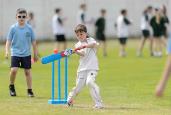Bài Tập Tiếng Anh Lớp 6 Unit 1 My New School Có File Nghe Và Đáp Án
>>> Mọi người cũng quan tâm:
Bài Tập Tiếng Anh Lớp 6 Unit 1 My New School Có File Nghe Và Đáp Án – Tiếng Anh 6 KNTT là tài liệu học tập được Trang Tài Liệu biên soạn và sưu tầm từ những nguồn dữ liệu mới nhất hiện nay. Tài liệu này sẽ giúp các em luyện tập, củng cố kiến thức từ đó nâng cao điểm số cho môn học. Ngoài ra, cũng giúp các thầy cô giáo có nguồn tài nguyên phong phú để giảng dạy.
Dưới đây là bản đọc trực tuyến giúp thầy cô và các em học sinh có thể nghiên cứu Online hoặc bạn có thể tải miễn phí với phiên bản word để dễ dàng in ấn cũng như học tập Offline.
1
MY
NEW SCHOOL
UNIT





PRONOUNCIATION

/a:/ |
/ʌ/ |
car |
brother |
Âm / a /
“a” thường được phát âm là / a: / khi nó đứng trước “r”
Examples
Transcription
Meaning
smart
/ smɑːt /
thông minh
large
/lɑːrdʒ/
rộng lớn
“a”được phát âm là /a / trong một số trường hợp
Examples |
Transcription |
Meaning |
ask |
/ɑːsk / |
hỏi |
path |
/pɑːθ / |
đường mòn |
1.3. “ua” và “au” cũng có thể được phát âm là /ɑː/
Examples |
Transcription |
Meaning |
guard |
/gɑːd/ |
bảo vệ |
suave |
/swɑːv/ |
khéo léo, tinh tế |
2. Âm /ʌ/
2.1. “o” thường được phát âm là /ʌ/ trong những từ có một âm tiết, và trong những âm tiết được nhấn mạnh của những từ có nhiều âm tiết.
Examples |
Transcription |
Meaning |
come |
/kʌm/ |
đến, tới |
some |
/sʌm/ |
một vài |
2.2. “u” thường được phát âm là /ʌ/ đối với những từ có tận cùng bằng u + phụ âm.
Examples |
Transcription |
Meaning |
but |
/bʌt/ |
nhưng |
cup |
/kʌp/ |
cái tách, chén |
Trong những tiếp đầu ngữ un, um
Examples |
Transcription |
Meaning |
uneasy |
/ʌnˈiːzi/ |
bối rối, lúng túng |
umbrella |
/ʌmˈbrelə/ |
cái ô |
2.3. “oo” thường được phát âm là /ʌ/ trong một số trường hợp như
Examples |
Transcription |
Meaning |
blood |
/blʌd/ |
máu, huyết |
flood |
/flʌd/ |
lũ lụt |
2.4. “ou” thường được phát âm là /ʌ/ đối với những từ có nhóm “ou” với một hay hai phụ âm
Examples |
Transcription |
Meaning |
country |
/ˈkʌntri/ |
làng quê |
couple |
/ˈkʌpl/ |
đôi, cặp |
Task
1. Put the words into the correct columns.
smart |
cartoon |
stars |
cup |
charge |
charge |
mother |
start |
heart |
come |
Monday |
father |
path |
month |
mum |
brother |
uneasy |
dough |
ask |
country |
but |

unhappy |
blood |
Mars |
class |



/ʌ/ ……………………………………………………………………………………… ……………………………………………………………………………………… ………………………………………………… ………………………………………………… ………………………………………………… ………………………………………………….
/a/ ……………………………………………………………… ……………………………………………………………… ……………………………………………………………… ………………………………………………… ………………………………………………… ………………………………………………….

Task
2. Circle the word that has the underlined part pronounced
differently
1. A. cover |
B. go |
C. flow |
D. so |
2. A. aunt |
B. ball |
C. call |
D. chalk |
3. A. summer |
B. sun |
C. glue |
D. shut |
4. A. Monday |
B. play |
C. carp |
D. stay |
5. A. blood |
B. shoot |
C. shut |
D. flood |
6. A. money |
B. sorry |
C. morning |
D. story |
7. A. now |
B. grow |
C. down |
D. town |
8. A. study |
B. student |
C. studio |
D. stupid |
9. A. house |
B. about |
C. hour |
D. country |
10. A. lunch |
B. fun |
C. judo |
D. sun |
1
MY
NEW SCHOOL
UNIT






VOCABULARY
New words |
Transcription |
Meaning |
activity |
/ækˈtɪvəti/ |
hoạt động |
art |
/ɑːt/ |
nghệ thuật |
backpack |
/ˈbækpæk/ |
ba lô |
binder |
/ˈbaɪndə(r)/ |
bìa hồ sơ |
boarding school |
/ˈbɔːdɪŋ skuːl/ |
trường nội trú |
borrow |
/ˈbɒrəʊ/ |
mượn, vay |
break time |
/breɪk taɪm/ |
giờ ra chơi |
chalkboard |
/ˈtʃɔːkbɔːd/ |
bảng viết phấn |
classmate |
/ˈklɑːsmeɪt/ |
bạn cùng lớp |
compass |
/ˈkʌmpəs/ |
compa |
creative |
/kriˈeɪtɪv/ |
sáng tạo |
diploma |
/dɪˈpləʊmə/ |
bằng, giấy khen |
equipment |
/ɪˈkwɪpmənt/ |
thiết bị |
excited |
/ɪkˈsaɪtɪd/ |
hào hứng, phấn khích |
folder |
/ˈfəʊldə(r)/ |
bìa đựng tài liệu |
greenhouse |
/’griːnhaʊs/ |
nhà kính |
gym |
/dʒɪm/ |
phòng tập thể dục |
healthy |
/ˈhelθi/ |
khỏe mạnh |
help |
/help/ |
giúp đỡ |
history |
/ˈhɪstri/ |
lịch sử |
ink |
/iŋk/ |
mực |
ink bottle |
/iŋkˈbɒtl/ |
lọ mực |
international |
/ɪntəˈnæʃnəl/ |
thuộc về quốc tế |
interview |
/ˈɪntəvjuː/ |
cuộc phỏng vấn |
judo |
/ˈdʒuːdəʊ/ |
môn võ ju-đô (của Nhật) |
kindergarten |
/ˈkɪndəgɑːtn/ |
nhà trẻ |
knock |
/nɒk/ |
gõ cửa |
lecturer |
/ˈlektʃərər/ |
giảng viên |
locker |
/ˈlɒkə(r)/ |
tủ có khóa |
mechanical pencil |
/məˈkænɪkl ˈpensl/ |
bút chì kim |
neighbourhood |
/ˈneɪbəhʊd/ |
hàng xóm, vùng lân cận |
notepad |
/ˈnəʊtpæd/ |
sổ tay |
overseas |
/əʊvəˈsiːz/ |
ở nước ngoài |
pencil sharpener |
/ˈpensl ˈʃɑːpənər/ |
gọt bút chì |
physics |
/ˈfɪzɪks/ |
môn Vật lý |
playground |
/ˈpleɪgraʊnd/ |
sân chơi |
pocket money |
/ˈpɒkɪt ˈmʌnɪ/ |
tiền tiêu vặt |
poem |
/ˈpəʊɪm/ |
bài thơ |
private tutor |
/ˈpraɪvət ˈtjuːtə(r)/ |
gia sư riêng |
pupil |
/ˈpjuːpil/ |
học sinh |
quiet |
/ˈkwaɪət/ |
yên tĩnh, yên lặng |
remember |
/rɪˈmembə(r)/ |
ghi nhớ |
ride |
/raɪd/ |
đi xe |
schoolbag |
/ˈskuːlbæg/ |
cặp xách |
school lunch |
/ˈskuːl lʌntʃ/ |
bữa ăn trưa ở trường |
school supply |
/ˈskuːl səˈplaɪ/ |
dụng cụ học tập |
science |
/ˈsaɪəns/ |
môn Khoa học |
share |
/ʃeə(r)/ |
chia sẻ |
spiral notebook |
/ˈspaɪrəl ˈnəʊtbʊk/ |
sổ, vở gáy xoắn/ lò xo |
student |
/stjuːdənt/ |
học sinh |
surround |
/səˈraʊnd/ |
bao quanh |
swimming pool |
/ˈswɪmɪŋ puːl/ |
bể bơi |
teacher |
/ˈtiːtʃə(r)/ |
giáo viên |
textbook |
/ˈtekst bʊk/ |
sách giáo khoa |
uniform |
/ˈjuːnɪfɔːm/ |
bộ đồng phục |
Task
1. Look at the pictures and complete the blanks with the words
given.
books |
pen |
schoolbag |
ruler |
eraser |
compass |
calculator |
notebook |
4…………………
1………………

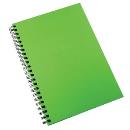
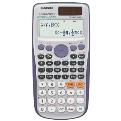
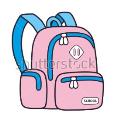
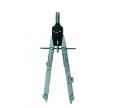
2…………………
3…………………


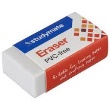


8…………………
7…………………
6…………………
5…………………



Task
2. Look
at the pictures and name the activities




1. reading 2. 3. 4.
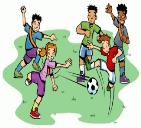
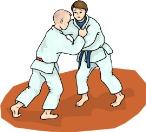
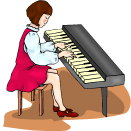
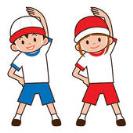
5. _________________ 6. 7. 8.
Task
3: Put
the
words into the right column.
music lessons judo football housework homework history lunch
English aerobics vocabulary exercise the
piano geography
breakfast sports science drawings badminton subjects English
lesson
paintings dinner the
violin basketball karate Maths
play
do
have
study

Task
4. Complete the sentences with the words from the box.
uniforms boarding library classmates calculator
equipment excited international creative lessons
1. Vy and Phong are_______________ about their first day at secondary school.
2. Phong and Duy are in the same class at school. They are _______________.
3. Most schools require children to wear school _______________.
4. My sister is very _______________. She is very good at painting pictures.
5. A _______________ school is a school where students study and live during the school year.
6. AIS is an _______________ school in Vietnam. It provides American education.
7. The school gym has lots of new, modern _______________.
8. In the ____________, you can read books and papers or borrow them to read at home.
9. I left my _______________at home. Can you lend me your calculator?
10. Today is Tuesday and we have five ___________: math, literature, science, music and art.
Task
4. Choose the best answer to fill in the blank.

1. Listening to music is one of the most popular leisure __________.
A.kindergart B. activities C. hobby D. equipments
2. My son is just 2 years old and he is in __________ now.
A.kindergarten B. secondary school
C. overseas D. high school
3. I don’t like to __________ money from friends.
A.pay B. knock C.borrow D.help
4. We only have time for a snack at __________.
A.lunch B. gym C.meals D.break time
5. Do you know where our new __________ is? Our teacher wants to meet him.
A.poem B. classmate C. swimming pool D. gym
6. In order to keep __________, you should eat well and exercise regularly.
A.warm B. excited C.healthy D.quiet
7. My sister always has a lot of new ideas. She’s a __________ person.
A.creative B. hard-working C. quiet D.healthy
8. Don’t go climbing without the necessary __________.
A. uniform B. pocket money C. equipment D. share
9. Today is my son’s first day at school so he is very __________.
A. creative B. excited C.worry D.interesting
10. It’s impolite to go into someone’s room without __________.
A. riding B. playing C. knocking D. sharing
11. Students will get to live away from home if they study in a __________.
A.boarding school B. greenhouse C. neighbourhood D. surround
12. In order to draw a circle, we need a pair of __________.
A. share B. compasses C. poems D. pencil sharpener
13. Students will be punished if they don’t wear __________ at school.
A. uniform B. kindergarten C. pocket money D. compass
MY
NEW SCHOOL
1
UNIT






GRAMMAR
1. Present simple (Thì hiện tại đơn)
a. Form
|
Normal verb |
Be |
(+) |
I, you, we, they + V-inf He, she, it + V(s/es) |
I + am You, we, they + are He, she, it + is |
(-) |
I, you, we, they + don’t + V-inf He, she, it + doesn’t + V-inf |
I am not You, we, they + aren’t He, she, it + isn’t |
(?) |
Do + I, you, we, they + V-inf? Does + he, she, it + V-inf? |
Am + I...? Are + you, we, they ...? Is + he, she, it...? |
b. Usage
Thì hiện tại đơn dùng để diễn tả một thói quen hoặc một hành động có tính lặp đi lặp lại ở hiện tại.
VD: She often goes to school at seven o’clock in the morning,
(Cô ấy thường đi học vào 7giờ sáng.)
Thì hiện tại đơn dùng để diễn tả một chân lý hoặc một sự thật hiển nhiên.
VD: The sun rises in the East and sets in the West.
(Mặt trời mọc đằng đông và lặn đằng Tây.)
Dùng để chỉ một sự việc sẽ xảy ra trong tương lai theo thời gian biểu hoặc lịch trình.
VD: The news programme starts at seven p.m.
(Chương trình thời sự bắt đầu vào lúc 7 giờ tối.)
c. Signals
Cụm từ với “every”: every day (mọi ngày), every year (mọi năm), every month (mọi tháng), every afternoon (mọi buổi chiều), every morning (mọi buổi sáng), every evening (mọi buổi tối)...
Cụm từ chỉ tần suất: once a week (1 lần 1 tuần), twice a week (2 lần một tuần), three times a week (3 lần một tuần), four times a week (4 lần một tuần), five times a week (5 lần một tuần), once a month (một lần một tháng), once a year (một lần một năm)...
Trạng từ chỉ tần suất: always, usually, often, sometimes, never, rarely...
d. How to add “s/es”to verbs
❖ Thông thường ta thêm “s” vào sau các động từ.
listenlistens play plays
❖ Những động từ tận cùng bằng: -s; -sh; -ch; -z; -x; -o ta thêm “es”.
missmisses watch watches mix mixes
wash washes buzz buzzes go goes
❖ Những động từ tận cùng là “y”:
+ Nếu trước “y” là một nguyên âm (a, e, i, o, u) - ta giữ nguyên “y” + “s”
playplays buybuys paypays
+Nếu trước “y” là một phụ âm - ta đổi “y” thành “i” + “es”
flyflies crycries fryfries
2. Adverbs of frequency (Trạng từ chỉ tần xuất)
Usage
Trạng từ tần suất được sử dụng để diễn tả mức độ thường xuyên của một hành động hay một thói quen. (luôn luôn, thường xuyên, thỉnh thoảng, không bao giờ,…)
Ví dụ:
– He always do morning exercise at 5 a.m. (Anh ta luôn luôn tập thể dục lúc 5 giờ sáng)
Trạng từ chỉ tần suất dùng để trả lời các câu hỏi về “How often ( Có thường….?)”
Ví dụ:
– How often do you go shopping? (Bạn có thường đi mua sắm không?)
=> I sometimes go shopping. (Tôi thỉnh thoảng mới đi mua sắm)
Các trạng từ chỉ tần suất thường sử dụng
Trạng từ chỉ tần suất |
Ý nghĩa |
Always |
Luôn luôn (ở mức 100%) |
Usually |
Thường xuyên (mức 90%) |
Often |
Thường thường (mức 70%) |
Sometimes |
Đôi khi, đôi lúc (mức 50%) |
Never |
Không bao giờ (mức 0%) |
Ví dụ:
She always gets up late. (Cô ấy luôn luôn thức dậy trễ.)
She often goes to the park. (Cô ấy thường đi công viên.)
She sometimes eats at home. (Cô ấy thỉnh thoảng mới ăn ở nhà.)
She seldom goes picnic. (Cô ấy hiếm khi đi dã ngoại.)
She never plays badminton. (Cô ấy không bao giờ chơi tennis.)
Form :
Đứng sau động từ “tobe”
Ví dụ: I am never late for school. (Tôi không bao giờ đi học trễ)
2. Đứng trước động từ chính và đứng sau chủ từ
Ví dụ: He sometimes wash his car. (Anh ta thỉnh thoảng mới rửa xe)
3. Đứng giữa trợ động từ và động từ chính trong câu
Ví dụ:
– I have never been abroad. (Tôi chưa bao giờ đi nước ngoài)
– You should usually do your homework before going to school. (Bạn nên làm bài tập về nhà trước khi đến lớp)
Task
1. Give the correct form of verbs.
She (walk)___________ to school every morning.
They (learn) ___________________ how to use the lawnmower in their free time.
Linda (go) ______________to the supermarket to buy some sugar.
Sometimes I (feel) _________________________ really lazy to do anything.
Phong and I (study) _________________________ English in my room.
I often (have) ____________________ breakfast at 7 am at home.
She (do)_________________ aerobics every morning to keep fit.
Nga (like) __________________playing basketball very much.
What time you (have) _____________________lunch every day?
She (not have) __________________ any pen, so I lend her one.
11. They ______________ (play) football and basketball at school.
12. My father ______________ (read) the newspaper every morning.
13. We ______________ (have) English, Maths and Science on Monday.
14. She never ______________ (do) her homework.
15. I ______________ (go) swimming twice a week.
16. Cars ______________ (be) more expensive than motorbikes.
17. Jane always ______________ (have) breakfast at 6 o’clock.
18 He usually ______________ (watch) TV after dinner.
19. London ______________ (be) a very big country.
20. I _____________ (be) a student and my parents ___________ (be) teachers.
Task
2. Put the adverb of frequency into the correct place. Then give the
correct form of verbs.

1. My brothers (sleep) on the floor. (often)
.
2. He (stay) up late? (sometimes)
.
3. I (do) the housework with my brother. (always)
.
4. Peter and Mary (come) to class on time. (never)
.
5. Why Johnson (get) good marks? (always)
.
6. You (go) shopping? (usually)
.
7. She (cry). (seldom)
.
8. My father (have) popcorn. (never)
.
Task
3. Change these sentences into negative and interrogative form
1. They listen to English every day.
.
.
2. She plays badminton every afternoon.
.
.
3. We play volleyball every morning.
.
.
4. He does homework every night.
.
.
5. Mary and Peter go to work every day
.
.
6. He gets up at 9.00 every morning.
.
.
Task
4.Make
questions in the present simple. Then write short answers.
1. you/ have/ an art lesson on Monday (no)
?
2. they/ ride/ their bikes to school (yes)
?
3. Jane/ play/ tennis at school (no)
?
4. your parents/ at home now (yes)
?
5. he/ have/ breakfast at 6 o’clock every day (yes)
?
6. you/ a good student (no)
?
7. I/ look/ well (no)
?
8. Ms. Van/ a good teacher (yes)
?





1
UNIT
MY NEW SCHOOL

SPEAKING
Task
1. Match the questions and answer. Then practice.
|
|
|
|
|
|
|
|
|
|
|
|
|
|
|
|
|
|
|
|
|
|
|
|
Task
2. Write questions for the underlined words.
|
|
|
…………………………………… |
|
|
|
|
|
|
|
|
…………………………………… |
|
|
|
|
|
…………………………………… |
|
|
…………………………………… |
|
|





MY NEW SCHOOL
1
UNIT

LISTENING
Task
1. Match the pictures with the names of the school activities.
|
|
|
A_____ |
B______ |
C_________
|
|
|
|
D________ |
E__________ |
F__________
|
1. Playing cricket 2. Dancing 3. Going camping
4. Singing 5. Playing football 6. Arranging flowers
Task
2. Now listen and decide which activities are mentioned. Put a tick
next to it
Playing cricket ___ |
Dancing___ |
Going camping___ |
Singing___ |
Playing football___ |
Arranging flowers___ |
Task
3. Listen again and decide if the statements below are true (T) or
false (F).
1. Students play football every Thursday afternoon.
2. The headmaster hates songs.
3. There is a singing contest each month.
4. Only girls join in flower arranging competition.
1
MY
NEW SCHOOL
UNIT






READING
Task
1: Read and answer the questions.
1. What grade is Linda in?
2. Who does she go to school with?
3. How does they go to school?
4. Why does Linda feel scary?
5. What are her favourite subjects?
6. Does she enjoy her first day at school?
Hi,
I’m Linda. I’m in the sixth grade. Today is my first day at
secondary school. In the morning I put on my new uniform and get
my new bag. My
best friend and I walk to school together. We are both very
nervous and excited. When we get school, we are shown into our
classroom with our new teacher. It is quite scary because I don’t
know most of the children. Then we go to our first lesson. We
have lots of different subjects and the lessons are really fun.
My favourite subjects are art and English. I
really like my new school, all my teacher are lovely, the lessons
are really interesting and I enjoy my first day. I can’t wait
to go back tomorrow!


Task
2:
Choose
the word which best fits each gap.
My dream school is a quiet school (1) ___________ we have just two or three hours a day, in the morning. Then, inthe afternoon, we can do many (2) ___________ like singing, dancing, playing soccer, basketball, rugby. We won’t havetests and mark either. The teachers will not (3) ___________ homework, so we can do whatever we want after school. In my dream school, we can also choose the (4) ___________ we want: for example, you’re not going to learn mathematics or physics if you hate (5)___________. So it’s a free school where you can learn with calm and serenity and you can make (6) ___________ friends during afternoon activities!
1. a. what b. where c. when d. how
2. a. subjects b. actions c. activities d. acts
3. a. give b. take d. do d. get
4. a. class b. classrooms c. classmates d. classes
5. a. it b. them c. her d. him
6. a. much b. few c. any d. lots of
Task
3:
Read the text and find 10 mistakes then correct them.
Example: live→ lives
Miss Lien live in a small house on Hanoi. She teaches English at a school there. She usually is breakfast in seven in the morning and she has dinner at twelve o’clock in the canteen of the school. She teaches his students in the morning. She teaches them dialogues on Wednesdays to Fridays. On Mondays, she teach them grammar. On the evening, she usually stays at home and listens books. She sometimes goes to the movie theatre. She always go to bed at ten o’clock.
ANSWERS
1.
2.
3.
4.
5.
6.
7.
8.
9.
10.

MY
NEW SCHOOL
1
UNIT






WRITING
Task
1. Reorder the words to make the correct sentences

1. secondary/ first/ your/ at/ school/ is/ how/ week?
2. lessons/ many/ have/ on/ how/ you/ do/ Friday?
3. art/ creative/ are/ drawings/ students/ the/ some/ doing/ in/ club
4. school/ at/ English/ we/ have/ classes/ don’t/ today
5. /in the evening/homework/ her/ do/ maths/ she/ Does?
6. children/ first/ on/ most/ school/ excited/ are/ day/ of/ the
Task
2. Complete the second sentence so that it has the same meaning as
the first.
1. What is your favorite subject?
→ What subject
2. There are 35 students in my class.
→ My class
3. Mai live near her school.
→ Mai’s house isn’t
4. Mary plays the piano very well.
→ Mary is good
5. Do you like physics?
→ Are you interested
6. The school has a computer room and a library.
Task
3. Write 6 sentences about your school. 
1. School’s
name: 2. School’s
address: 3. Number
of pupils: 4. Number
of teachers: 5. Uniform
colour: 6.
Favourite activity:



1
MY
NEW SCHOOL
UNIT





PRONOUNCIATION

Task
1. Put the words into the correct columns.
/a/ |
/ʌ/ |
…………………….
|
Monday uneasy brother unhappy but come cup blood mother mum country month |
Task
2. Circle the word that has the underlined part pronounced
differently
1. A |
6. A |
2. A |
7. B |
3. C |
8. A |
4. C |
9. D |
5. B |
10. C |
VOCABULARY

Task
1. Look at the pictures and complete the blanks with the words
given.
|
7. pen |
|
5. ruler |
6. eraser |
|
|
|
Task
2. Look
at the pictures and name the activities
2. skipping 3. dancing 4. drawing 5. playing football
6. doing judo 7. playing the piano 8. doing exercise
Task
3: Put
the
words into the right column.
- play: music, football, the piano, sports, badminton, the violin, basketball
-do: judo, housework, homework, aerobics, exercise, drawings, paintings, karate
-have: lessons, lunch, breakfast, English lesson, dinner
-study: music, history, English, vocabulary, geography, science, subjects, maths
Task
4. Complete the sentences with the words from the box.
1. excited 2. classmates 3. uniforms 4. creative
5. boarding 6. international 7. equipment 8. library
9. calculator 10. lessons

GRAMMAR
Task
1. Give the correct form of verbs.
Put the verbs in brackets into the correct form
1. walks |
2. are learning |
3. is going |
4. feel |
5. are studying |
6. have |
7. does |
8. like |
9. do you have |
10.doesn’t have |
11. play |
12. reads |
13. have |
14. does |
15. go |
16. are |
17. has |
18. watches |
19. is |
20. am - are |
Task
2. Put the adverb of frequency into the correct place. Then give the
correct form of verbs.

1. My brothers often sleep on the floor.
2. Does he sometimes stay up late?
3. I always do the housework with my brother.
4. Peter and Mary never come to class on time.
5. Why does Johnson always get good marks?
6. Do you usually go shopping?
7. She seldom cries.
8. My father never has popcorn.
Task
3. Change these sentences into negative and interrogative form
1. They don’t listen to English every day.
Do they listen to English every day?
2. He doesn’t play badminton every afternoon.
Does he play badminton every afternoon?
3. They don’t play volleyball every morning.
Do they play volleyball every morning?
4. He doesn’t do homework every night.
Does he do homework every night?
5. He doesn’t have breakfast at 6:30.
Does he have breakfast at 6:30?
6. He doesn’t get up at 9:00 every morning.
Does he get up at 9:00 every morning?
7. Mary and Peter don’t go to work every day.
Do Mary and Peter go to work every day?
8. We don’t have dinner at 8 p.m.
Do you have dinner at 8 p.m
Task
4.
Make questions in the present simple. Then write short answers.

1. Do you have an art lesson on Monday? No, I don’t.
2. Do they ride their bikes to school? Yes they do.
3. Does Jane play tennis at school? No, she doesn’t
4. Are your parents at home now? Yes, they are.
5. Does he have breakfast at 6 o’clock every day? Yes, he does.
6. Are you a good student? No, I am not.
7. Do I look well? No, you don’t.
8. Is Ms. Van a good teacher? Yes, she is.
SPEAKING

Task
1. Match the questions and answer. Then practice.
1.d 2.h 3.f 4.g 5.A 6.C 7.E 8.B
Task
2. Write questions for the underlined words.
What do you do after school?
How often dóe your brother go to judo club?
How many floors does your school have?
What subjects do you have on Monday?
What are Phong and Nam do at the moment?
Where are they going?
Who is Sam having lunch with ?
What subjects do you have on Friday.

LISTENING
Task
1. Match the pictures with the names of the school activities.
1. E 2. D 3. F 4. C 5. A 6. B
Task
2. Now listen and decide which activities are mentioned. Put a tick
next to it
playing cricket, singing, playing football, arranging flowers

Task 3. Listen again and decide if the statements below are true (T) or false (F).
1.F 2. F 3. T 4. F
Listening transcript:
My school has many good activities. We play cricket or football every Friday afternoon. Our headmaster likes songs, so he organizes singing contests every month. On Women’s day or Teachers’ day, we also join in flower arranging competitions. Many boys join in, can you believe it? It’s really funny.
1
MY
NEW SCHOOL
UNIT






READING
Task
1: Read and answer the questions.
1. She’s in grade 6.
2. She goes to school with her best friend.
3. They walk.
4. Because she doesn’t know most of the children.
5. Art and English.
6. Yes, she does.
Task
2:
Read
the following text and use the words given in the box to fill in the
blanks.
1. b 2. c 3. a 4. d 5. a 6. d
Task
3:
Read the text and find 10 mistakes then correct them.
1. on → in |
2. is → has |
3. in (seven) → at |
4. in → at |
5. his → her |
6. on → from |
7. teach → teaches
|
8.On the evening→ In the evening |
9.listens → reads |
10. go → goes |
MY
NEW SCHOOL
1
UNIT






WRITING
Task
1. Reorder the words to make the correct sentences

1. secondary/ first/ your/ at/ school/ is/ how/ week?
How is your first week at secondary school?
2. lessons/ many/ have/ on/ how/ you/ do/ Friday?
How many lesson do you have on Friday?
3. art/ creative/ are/ drawings/ students/ the/ some/ doing/ in/ club
Student are doing some creative drawing in art clulb
4. school/ at/ English/ we/ have/ classes/ don’t/ today
We don’t have English classes at school today
5. homework/ you/ doing/ maths/ are/ your?
Are you doing your Math homework?
6. children/ first/ on/ most/ school/ excited/ are/ day/ of/ the
Most children are excited on the first day of school
Task
2.

1. What subject do you like most?
2. My class has 35 students.
3. Mai’s house isn’t far from her school.
4. Alary is good at playing the piano.
5. Are you interested in physics?
6. There is a computer room and a library in the school.
Task
3. Write 6 sentences about your school.
1. School’s
name: 2. School’s
address: 3. Number
of pupils: 4. Number
of teachers: 5. Uniform
colour: 6.
Favourite activity:



.
MY
HOME
2
UNIT





PRONOUNCIATION

/z/ |
/s/ |
/iz/ |
pens |
books |
watches |
Task
1. Put the words into the correct columns.
/z/ rooms, dogs, beds, tables, chairs, televisions, pictures, cookers, windows, photos, clothes, villas, walls, shelves
/s/ lamps, toilets, apartments, books, baths, chopsticks, lights, parents, attics, plants, tablecloths, tourists
/iz/ houses, boxes, dishes, fridges, vases, wishes, sandwiches, classes
Task
2:
Choose
the word which has the underlined part pronounced differently from
the others.
1. A |
4. B |
7. D |
10. B |
13. A |
2. A |
5. C |
8. A |
11. C |
14. B |
3. D |
6. B |
9. D |
12. A |
15. C |
Ngoài Bài Tập Tiếng Anh Lớp 6 Unit 1 My New School Có File Nghe Và Đáp Án – Tiếng Anh 6 KNTT thì các tài liệu học tập trong chương trình 6 sẽ được cập nhật liên tục và nhanh nhất có thể sau khi kỳ thi diễn ra trên Danh mục Tài Liệu Học Tập nhằm giúp các bạn đọc thuận tiện trong việc nghiên cứu tài liệu. Quý thày cô và các bạn đọc có thể chia sẻ thêm những tài liệu học tập hữu ích đến địa chỉ email của chúng tôi, nhằm xây dựng nên kho đề thi phong phú, đa dạng cho các em học sinh tham khảo và rèn luyện.
Bài Tập Tiếng Anh Lớp 6 Unit 1 “My New School” là tài liệu bổ trợ cho học sinh lớp 6 để rèn kỹ năng nghe, nói, đọc và viết tiếng Anh trong chủ đề “Trường học mới của tôi”. Bộ tài liệu bao gồm các bài tập đa dạng và thú vị, giúp học sinh nắm vững từ vựng, ngữ pháp và cấu trúc câu trong tiếng Anh.
Bài tập được thiết kế có cấu trúc rõ ràng và dễ hiểu, giúp học sinh tự học và ôn tập theo từng phần trong bài học. Bộ tài liệu cung cấp cả file nghe đính kèm, giúp học sinh luyện nghe và phát âm chuẩn. Học sinh sẽ được luyện tập nghe các đoạn hội thoại, đọc các đoạn văn ngắn và thực hành viết các câu và đoạn văn theo chủ đề.
Đáp án cho các bài tập được cung cấp chi tiết, giúp học sinh tự kiểm tra và tự đánh giá kết quả của mình. Hướng dẫn giải cụ thể từng bài tập sẽ giúp học sinh hiểu rõ hơn về cách áp dụng ngữ pháp và từ vựng vào việc sử dụng tiếng Anh trong các tình huống giao tiếp hàng ngày.
Bài Tập Tiếng Anh Lớp 6 Unit 1 “My New School” với file nghe và đáp án là một công cụ hữu ích giúp học sinh rèn kỹ năng tiếng Anh một cách toàn diện. Bộ tài liệu không chỉ giúp học sinh nắm vững kiến thức mà còn giúp phát triển khả năng ngôn ngữ và tự tin sử dụng tiếng Anh trong cuộc sống hàng ngày.
>>> Bài viết có liên quan











